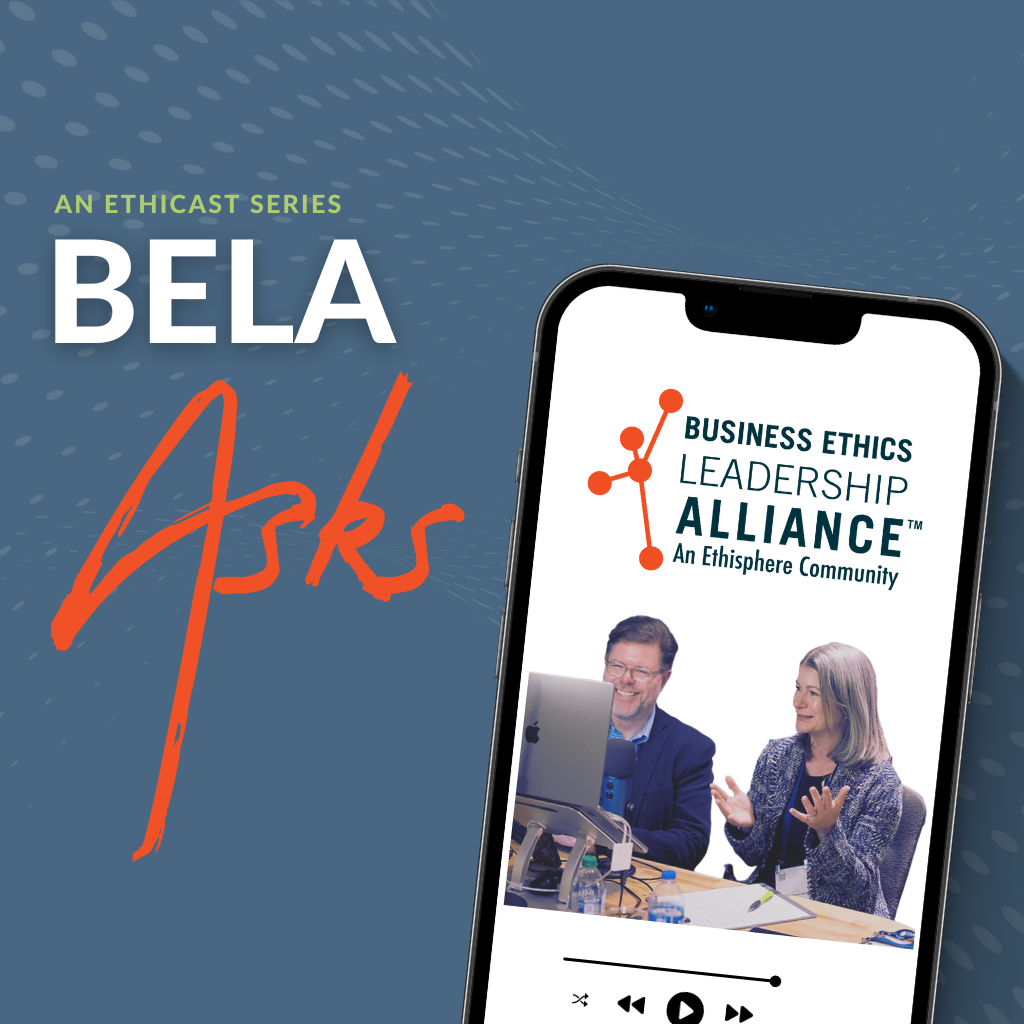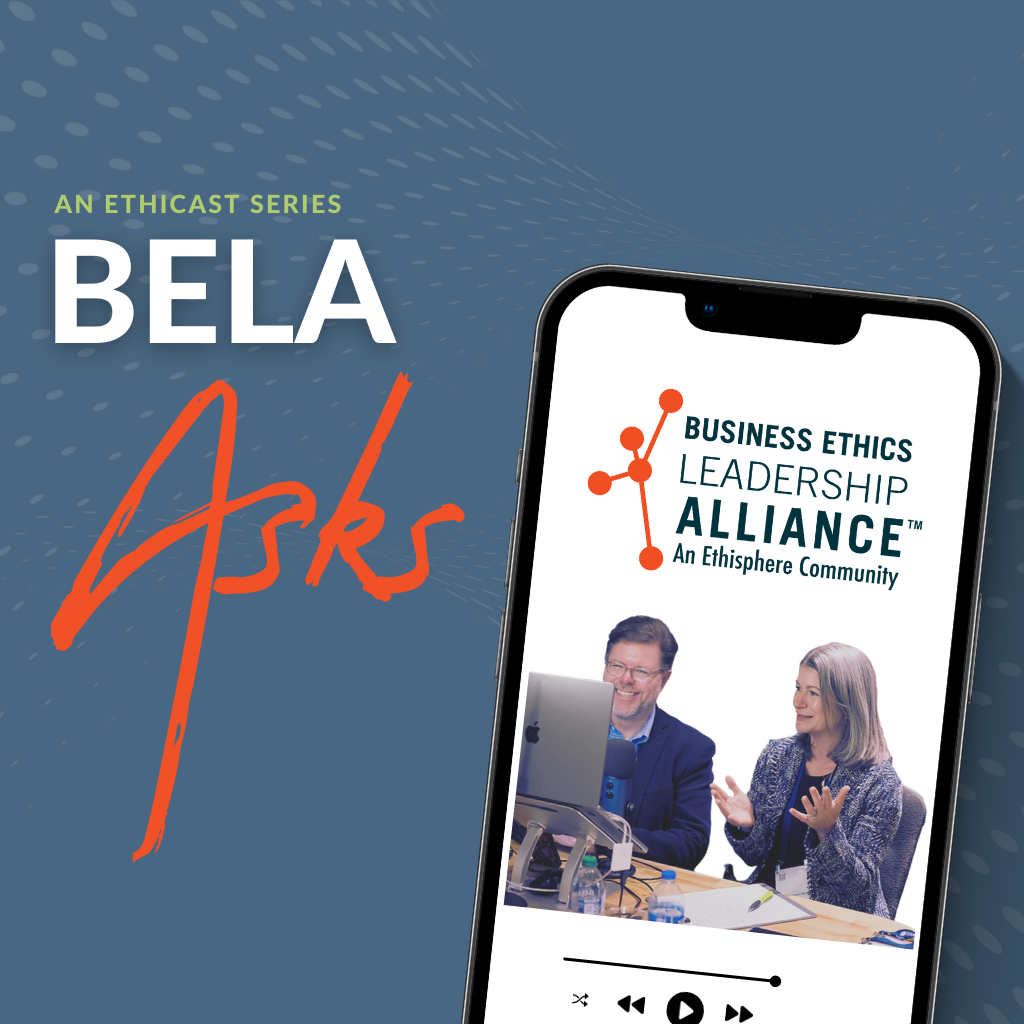[00:00:00] Speaker A: Hi everyone. Today we'll take a look at the dark pattern of cultural behaviors that paved the way to some of the biggest misconduct scandals in corporate history. I'm your host, Bill Coffin, and this is the Ethicast in ethics and compliance. We sometimes hear the maxim that in any organization there are 10% of people committed to doing the right thing and 10% who are committed to doing the wrong thing. And the 80% that's in between is where ethics and compliance departments try to make the biggest difference to prevent misconduct and promote business integrity.
When we see major misconduct stories make headlines, there is a powerful temptation to immediately blame the misconduct on the work of a few rogue employees who are in that 10% of dedicated wrongdoers. But what if it's not as simple as all that?
What if sometimes misconduct isn't the result of a few bad apples, but a rotten apple barrel? What happens when an organization's systemic, immoral and illegal behavior can't be explained away as individual character flaw? And what happens when misconduct is permitted to occur by the hundreds or even thousands of employees who do not speak up about it? Why is it in every major act of corporate wrongdoing we see otherwise good people, average folks with honorable values and without bad intentions who are inevitably involved?
These questions are at the heart of the Dark Pattern, the Hidden Dynamics of Corporate Scandals, a book by Guido Palazzo and Ulrich Hoffridge. The book examines epic ethical failures at organizations from Enron to Volkswagen, from Boeing to Theranos, from Wells Fargo to France Telecom. And in so doing, the book identifies nine toxic elements, a so called dark pattern that lead to corporate scandals. And it offers nine actionable lessons or a bright pattern for building morally resilient organizations.
With us today to talk about the dark pattern is author Guido Palazzo, professor of Business Ethics at the University of Lausanne in Switzerland. Guido, welcome to the program.
[00:02:02] Speaker B: Thanks for having me, Bill.
[00:02:04] Speaker A: You cover a great array of case studies in this book. As you research these, you surely uncover details about each case that you didn't know before you began writing. So how much darker were these cases than you expected? And are there any cases in particular that really struck you as being especially alarming in terms of the intensity or nature of the dark pattern that enabled misconduct?
[00:02:25] Speaker B: When you start to dig into these cases like Diesel Gate, Volkswagen, the Boeing crashes, or the Theranos fraud, what you expect is stories around the technology that they manipulated.
What you don't expect is the tremendous human suffering that you find going on in the background, because that is not in the news.
And I pick out Two of the cases that, well, partially gave me sleepless nights when I was investigating it and then reading the court documents. And these are the cases of France Telecom and Wells Fargo.
Wells Fargo, as probably most people know, is this case where 100,000 salespeople committed fraud on their own customers, focusing especially on the most vulnerable of their customers, like elderly people, people in financial trouble, or immigrants who didn't speak English. Well, France Telecom is the story of a French formerly state owned business that becomes privatized, but can, because of contracts, not fire the civil servants that worked for them before. But they have to get rid of people. So they try to organize a change management process in which they make so much pressure on the individuals they want to leave that they push about 100 people in three and a half years into suicide. So you have these two cases that for me stick out because of the human suffering which you find in all these cases. But here you have it in a magnitude that you don't have in the other cases.
One of the quotes that sticks out for me from the Wells Fargo case is that one of the salespeople who committed fraud later said, well, I have been in the Gulf War in 1991 and I must say Wells Fargo was worse.
Or someone else saying, I had to hide in the man's bathroom crying, or my boss came to me yelling four times a day, humiliating me in the open space office.
So you have these stories of individuals who are pushed into the wrong behavior, probably know that what they do is wrong, but they also feel they have no choice. So the human suffering is what scandals normally are not showing when we see read about them in the news.
[00:04:41] Speaker A: Oftentimes, even when an organization undergoes significant harm because of its misconduct, the cultural elements that lead it astray still remain in place. Can you talk about how organizations can address the long term systemic issues within their cultures that got them in trouble? And what organizations should realistically expect when trying to lift themselves from a dark pattern of behavior into a bright one.
[00:05:02] Speaker B: So one of the key elements of the dark pattern is toxic leadership. It's companies that have created a terror regime, a culture of fear where it was completely unthinkable to speak up towards your superiors.
Total obedience. You try to survive, you try to achieve your unrealistic goals. Another element of the pattern under any circumstance, at any price.
So this kind of broken culture is not going away once the company had its scandal and tries to clean up the mess that was left. And the Boeing scandal showed this very clearly. Years after the 277 Max crashed this plug door fell from the sky. And again we see a discussion in the news about the fear of people to speak up, the goals they could not achieve, the tremendous pressure on cost. So Boeing obviously has not learned its lesson. So how do you change subject culture? First of all, it takes time.
And second, you need to normalize a conversation on ethics in the overall, because only if you normalize the conversation on ethics will people feel safe that when they have an ethical issue, they can go to their superior and speak up. So the ethical conversations, they are key. But managers don't engage in them normally because first of all, they think if I speak about ethics, I'm considered a weak manager.
Second, because they believe that if they do so, they make themselves vulnerable and they have never learned to speak about ethics. So training managers, incentivizing them to talk about ethics to create this open overall atmosphere in which it is desired and not risky to speak about ethical issues, that is the first thing that has to happen. And that will create the context in which slowly people can build up trust into their new leadership. Hopefully new leadership. Because if it's the old leadership, change is even more difficult.
[00:07:06] Speaker A: Organizations that have been through a really bad time still feel it long afterwards. It reverberates in their culture.
Do you have any recommendations for organizations can address not just the reputational, economic and legal harm they may have brought upon themselves, but the very real psychological impact that the employees might face in the wake of misconduct.
[00:07:27] Speaker B: When you look at these scandals, all of them, there's one big mistake these companies make. Afterwards. When they clean up, they forget that the organization is completely traumatized. You have perpetrators, you have victims, you have people who colluded. So you have this feeling of shame, you have this moral trauma, and you have all kind of pressures not to talk about it. Your PR department don't want you to talk about this anymore because you have to look forward to clean up and say, we are a different company now. That's what they all say immediately.
Your legal department doesn't want you to talk about this because that could create new liabilities.
And your new management came in to look forward.
They have not been there when it happened. So companies don't talk about these things anymore.
At the same time, they ask their people to speak up, which is a bit absurd because the main thing people want to talk about in this very moment is what happened. If they cannot speak up about that, how do you expect them to speak up about future issues?
So this culture of silence about what happened, that is the biggest burden they take into their future.
What can you do? You need to create safe spaces where people can meet and talk about these things, where they can open up, where they can talk about their suffering. It's this feeling of being a victim of this shame that comes with what happened.
Shame that are that is given to them from inside, but also from outside.
Their friends, their family, the news. Everyone says you work for this bad company. How could this happen? So create a space where people can process their trauma. And that is the strongest fundament you can create for a credible speak up culture.
Sadly, as I said, I have never, in all my analysis, never seen a company that did this. They all tried to be silent about this. Volkswagen did even forbid the word diesel gate internally, right? So you could not even use that word that everyone outside was using to describe what went wrong. Forbidden. So create the space, make people talk about this. Maybe you produce a film on it or you use the one on Netflix. If you had a very big scandal and you teach with that film, with a case study, future new employees, new managers, and how to deal with that and how not to fall into the dark pattern again shortly after this had happened.
[00:10:05] Speaker A: There are a lot of companies that have succumbed to the dark pattern and then do try to rehabilitate themselves afterwards. Do you have any in mind that strike you as having been particularly successful at that?
[00:10:17] Speaker B: I think two companies.
First of all, it is not so easy to find the good examples. For the bad examples, I can dig into thousands of pages of court documents, books of investigative journalists, testimonials. But companies that are managed well, it's very often silently managed well because managers don't brag about being ethical leaders, they just do it and they live the culture. So finding the good examples is not easy.
In addition, I'm very cautious about good examples because all the bad ones have been the good ones. Sometimes one year earlier, winning awards for their ethics like Enron, or for their compliance programs like Volkswagen being employer of the year like Wells Fargo. So it's not so easy to talk about the good cases.
But I think we can talk about is what Whether or not a company took the right conclusions from having had a big scandal in two companies that we discuss in our book that I think draw the right conclusions are Novartis and Atkins Realis. Atkins Realis is a Canadian company that was formerly known as SMC Lavalin. Both of them had huge corruption and when they rebuilt, what they understood was that you cannot do this with a purely legalistic compliance approach. You have to enrich your compliance with ethics and psychology, psychology in order to understand how things can go wrong, how social dynamics build up around decision makers, the dark pattern that we describe in the book, you have to understand this and teach this to your managers so that they know that sometimes, against their own intention, they can push their teams towards the dark pattern, towards unethical behavior and legal behavior. So psychology is important to understand how you see it coming and how you prevent it from coming. Ethics is important because all these big scandals do not start as legal problems. They start with small ethical compromises in a gray zone and then step by step you move towards the dark side.
So understanding how ethical compromise spiral into the big legal issues and teaching managers to see the ethical dilemmas and to process them well, give them tools to manage ethics, is of utmost importance. And both Novartis and Atkins Realis have restarted after their big scandals by empowering their managers to be well trained in psychology and ethics and not just doing tick the box exercises in legal compliance.
[00:12:57] Speaker A: Well Guido, thank you for joining us today and for such a thoughtful and eye opening conversation around the dark pattern. It's been wonderful having you on the show.
[00:13:04] Speaker B: Thanks for having me.
[00:13:06] Speaker A: The Dark Pattern, the Hidden Dynamics of Corporate Scandals is available now wherever fine books are sold. To learn more about guido, please visit guidopalazzo.com or visit him on LinkedIn. We'll put a link to his profile in the show. Notes For a wide range of free reports, articles and videos on business integrity, speak up, culture manager training, and more, please visit the Ethisphere resource
[email protected] resources if you'd like to appear as a guest on this program to share a best practice success story or to discuss your own book on business integrity, we'd love to hear from you. Drop us a
[email protected] Ethicast thanks for joining us. We hope you've enjoyed the show. For new episodes each week, please be sure to subscribe on YouTube, Apple Podcasts and Spotify. Until next time, Remember, strong ethics is good business.


